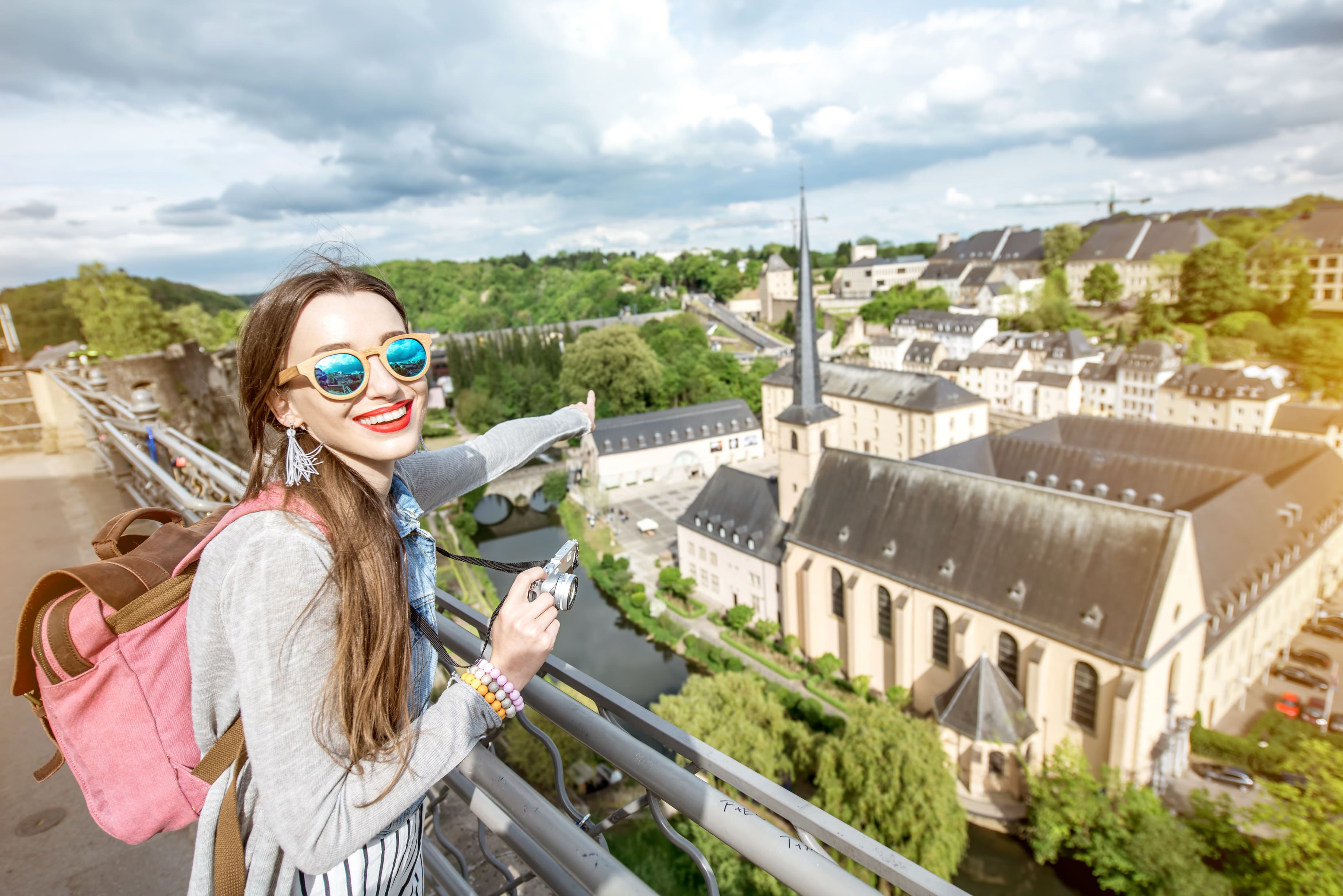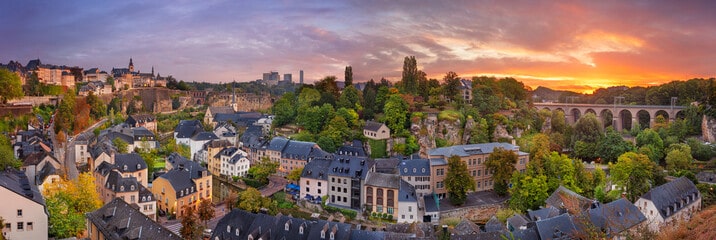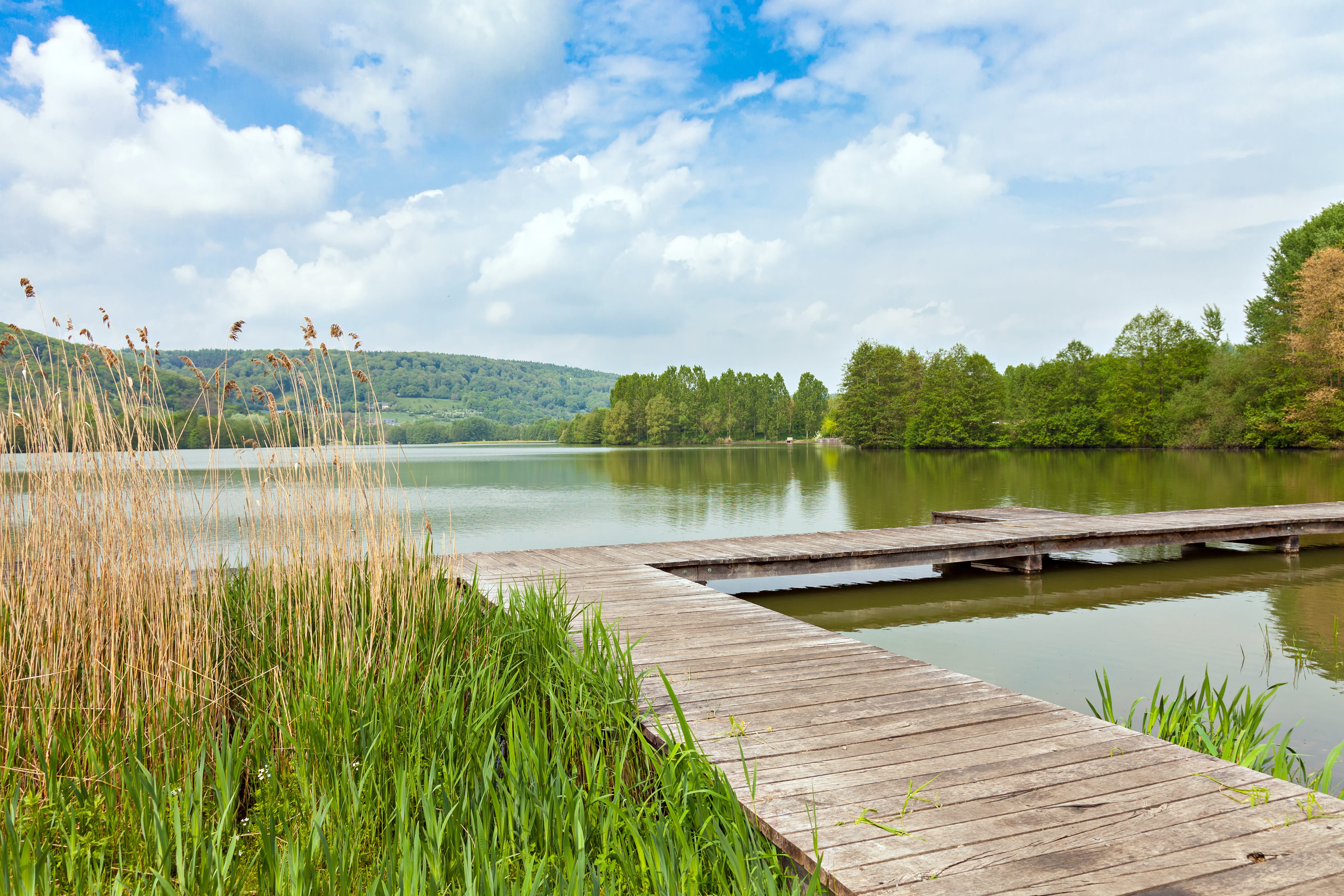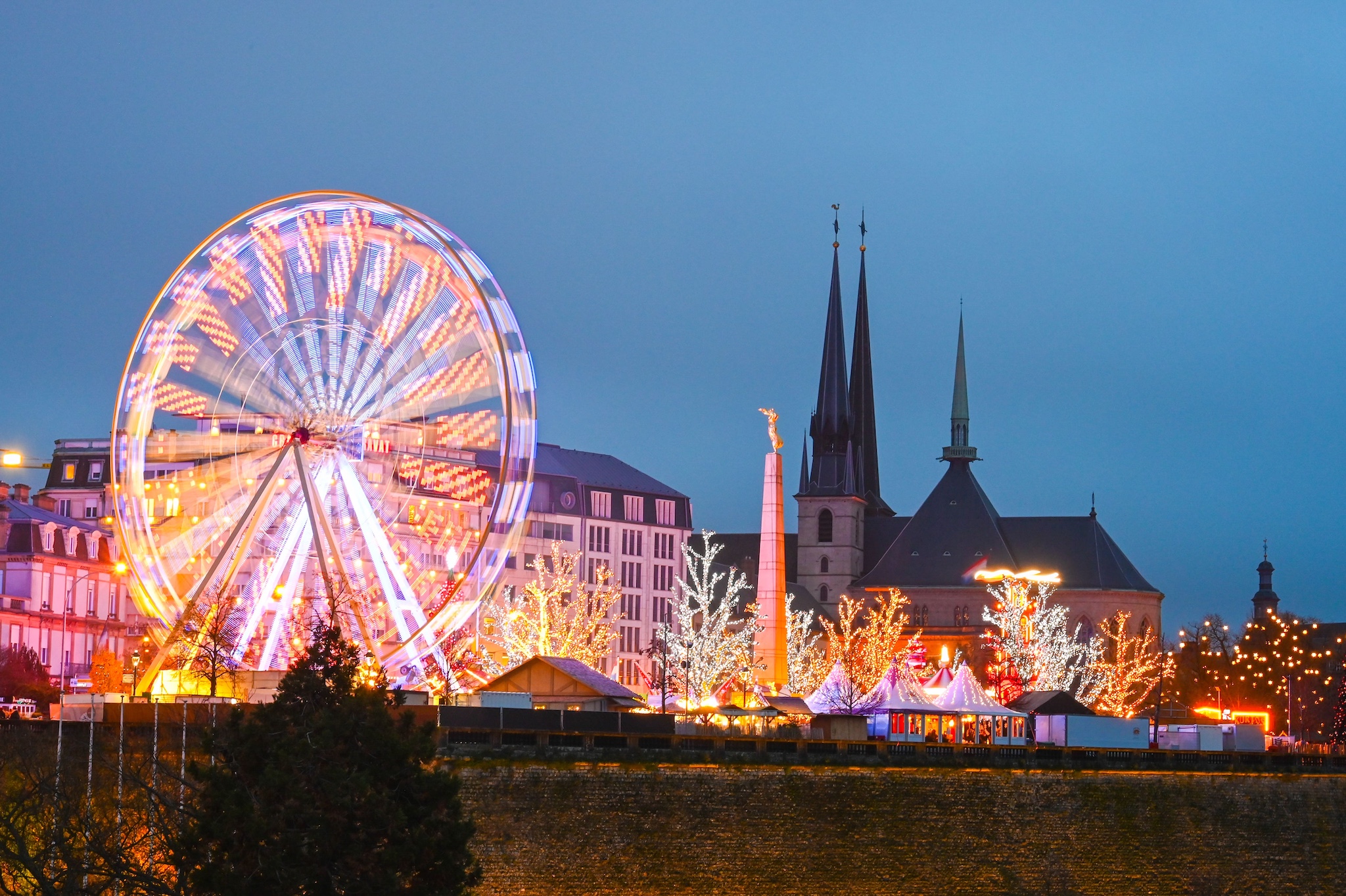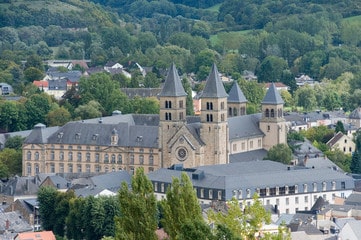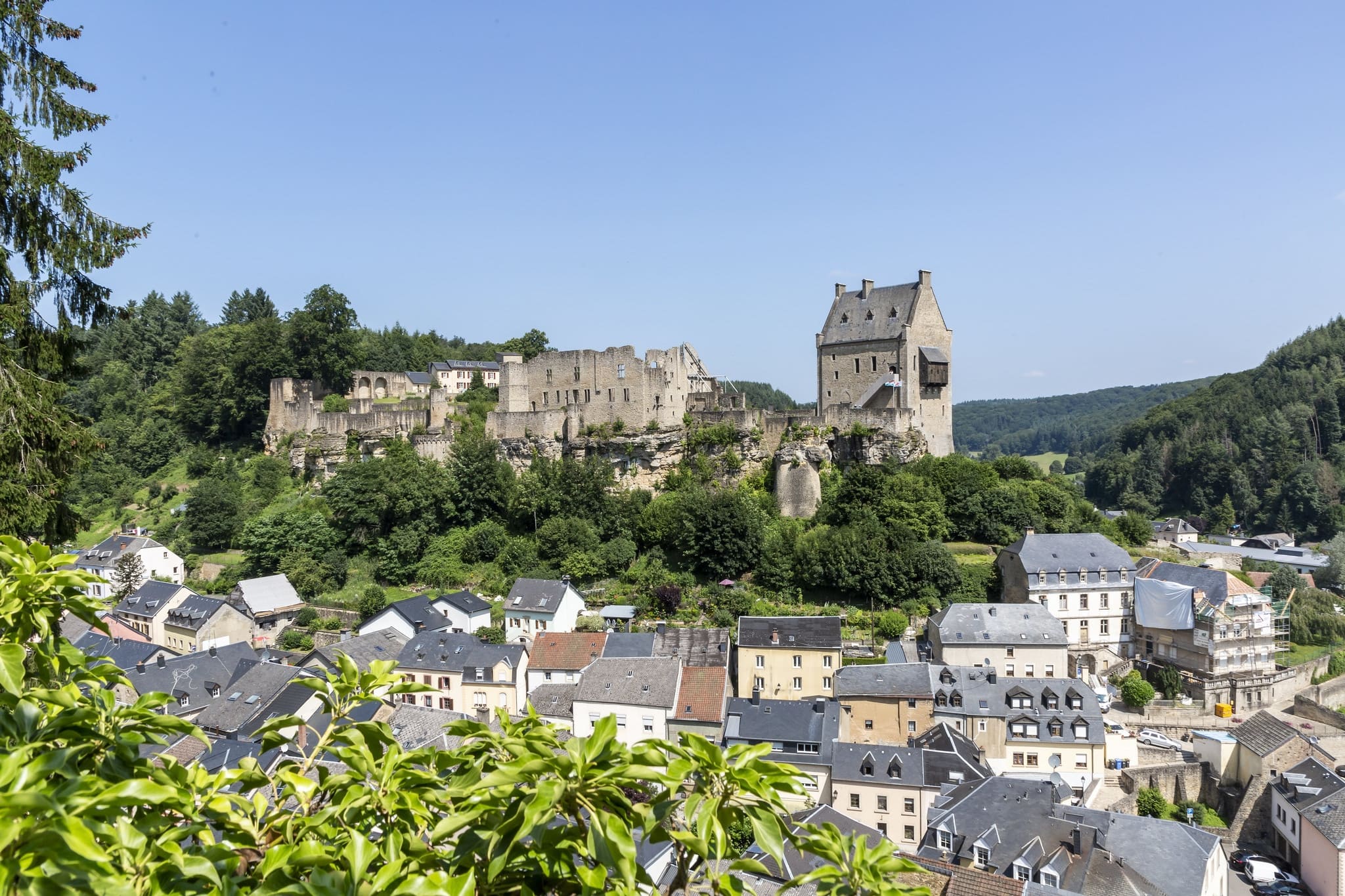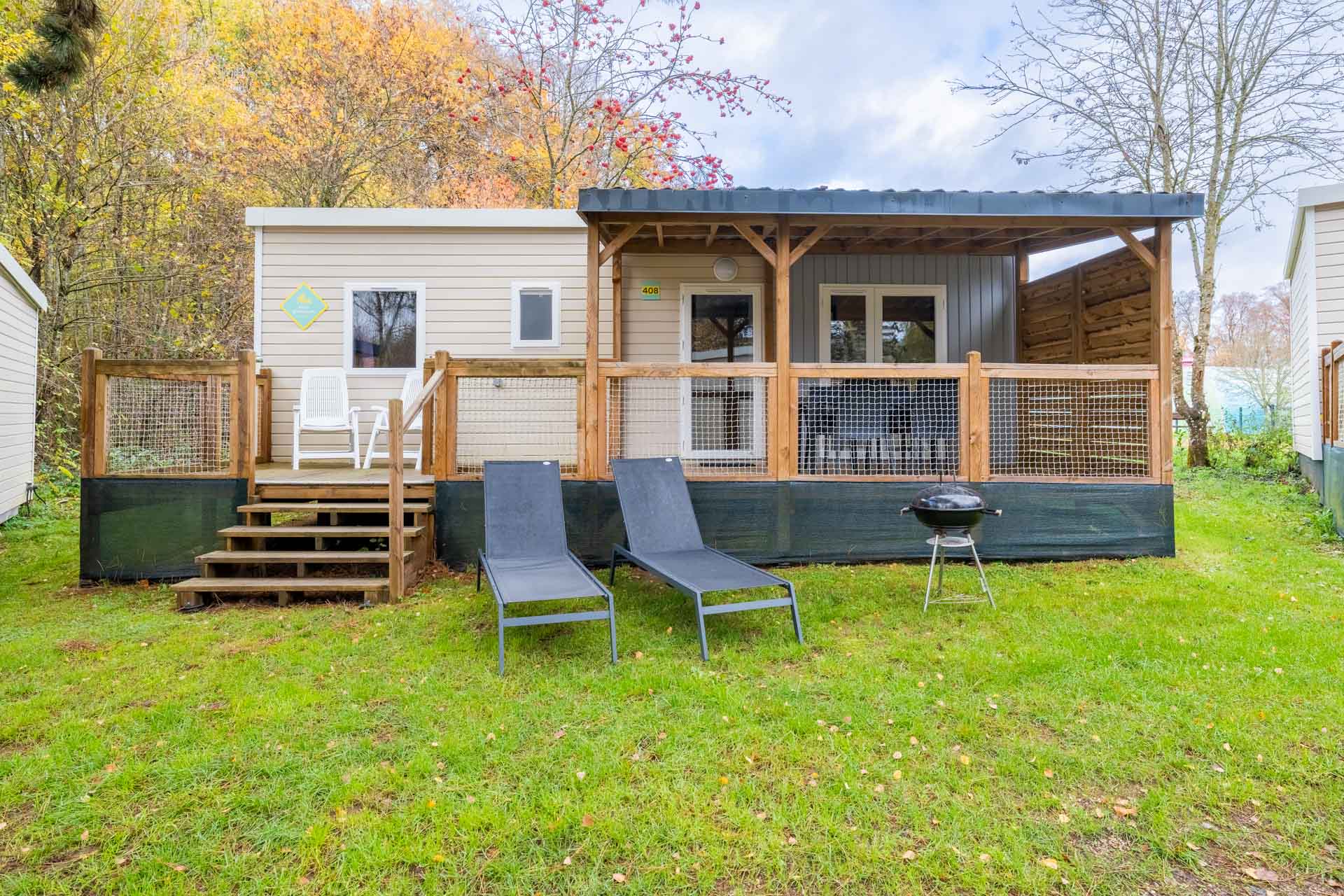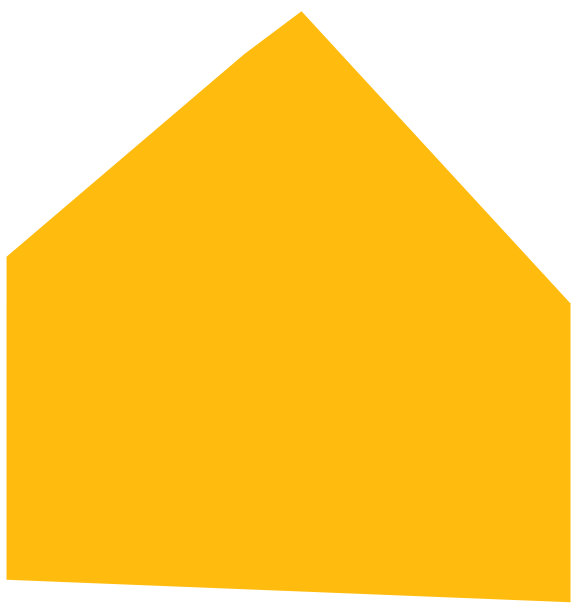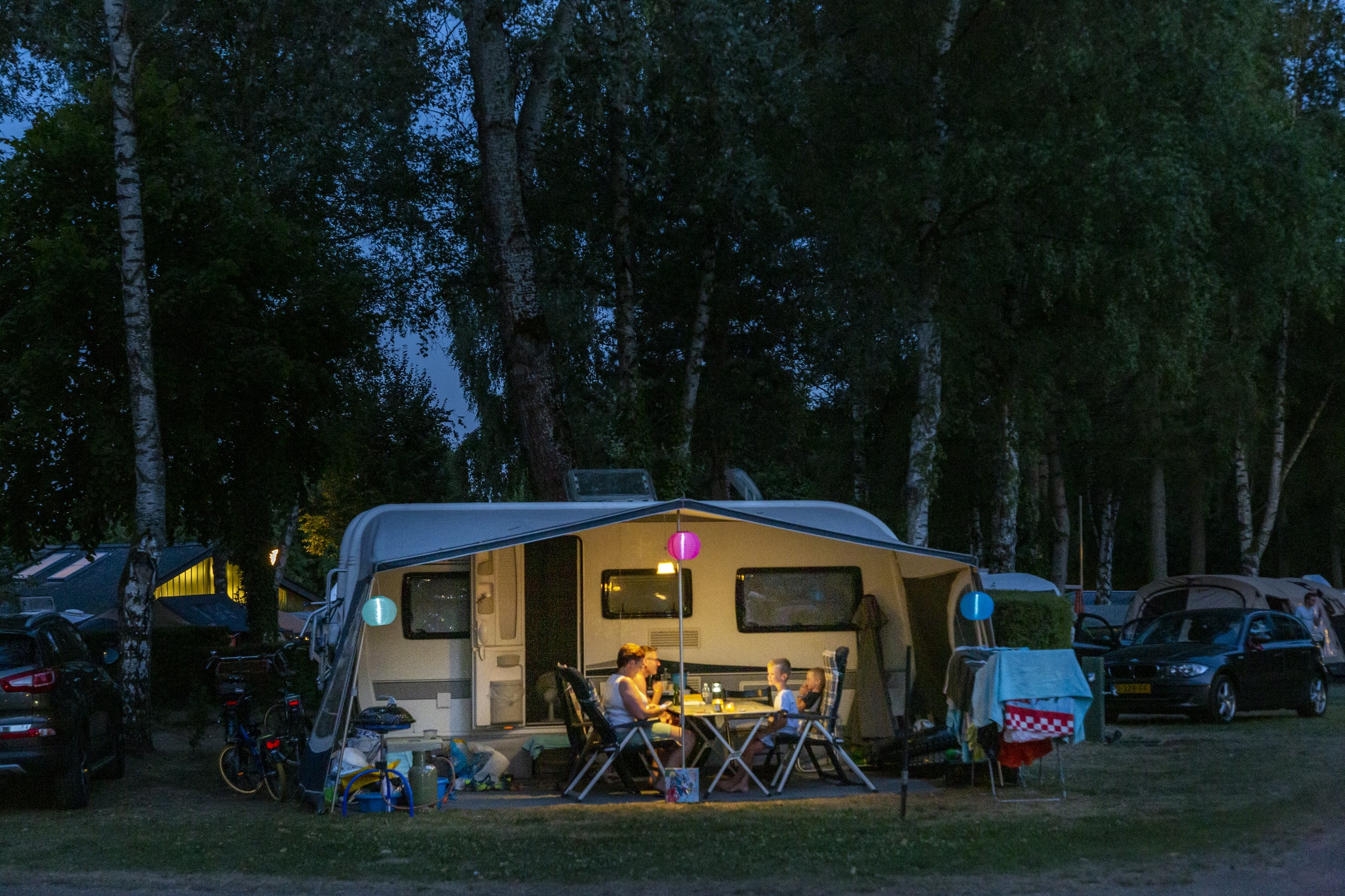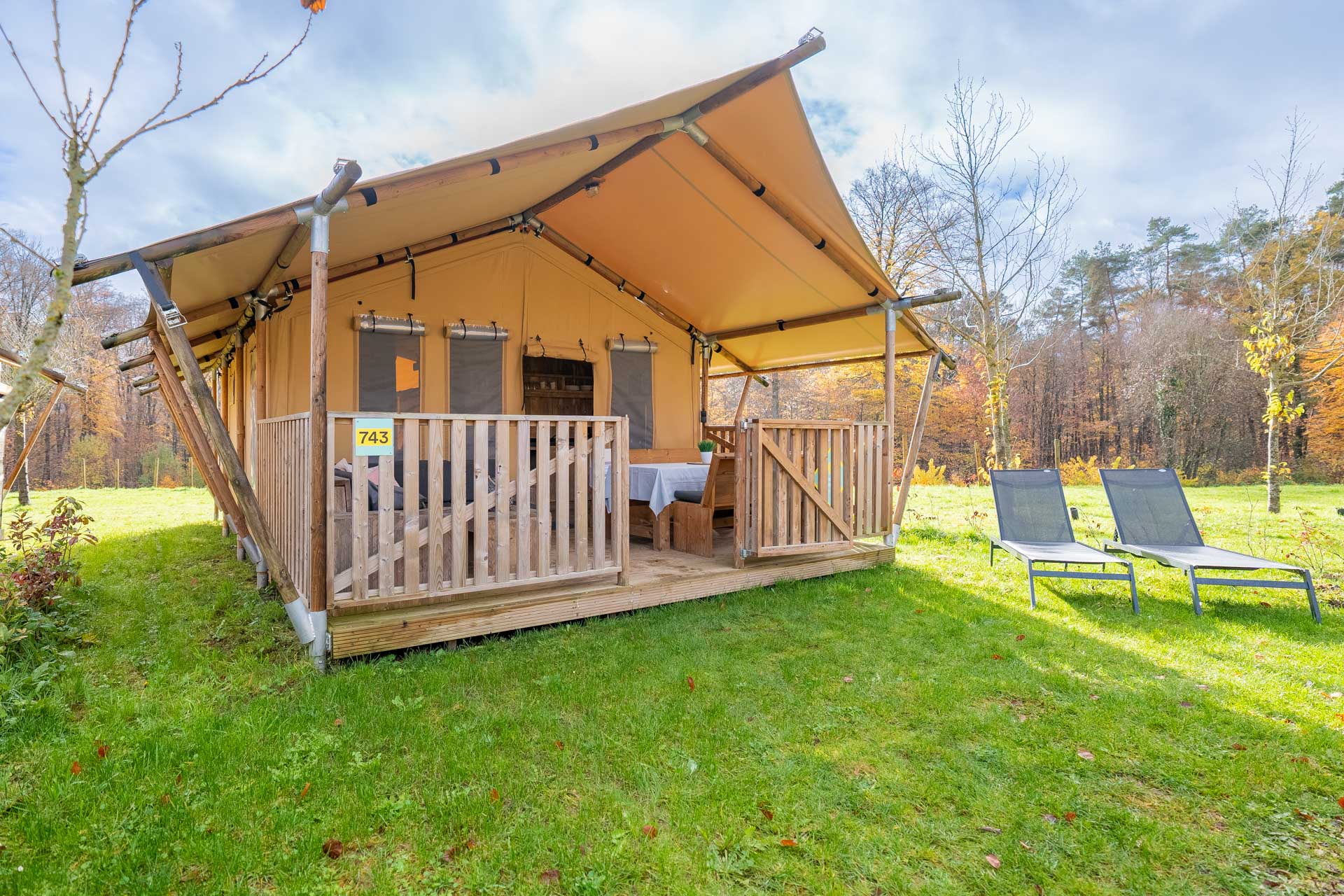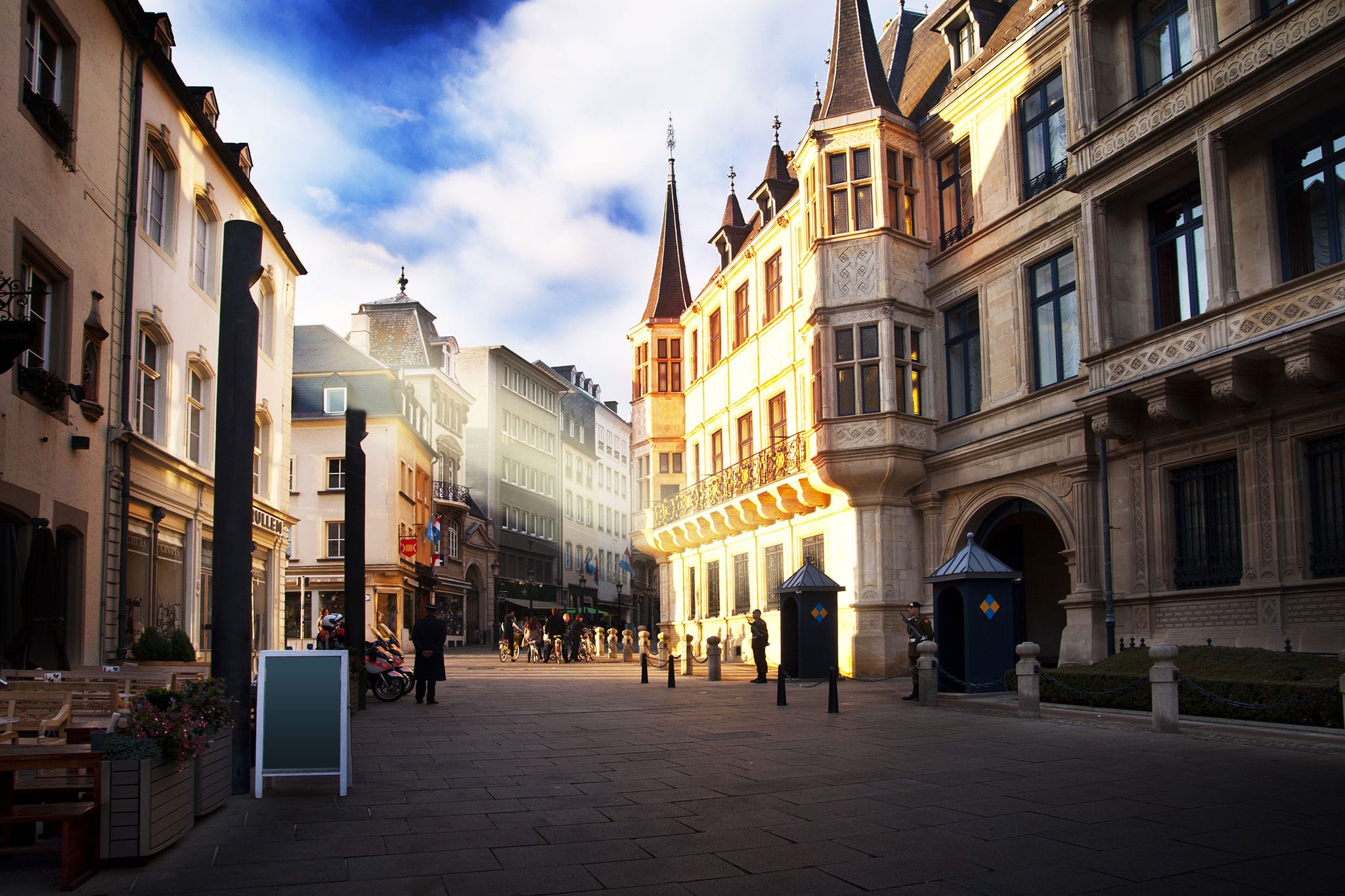
Luxembourg
A small gem of a country
Luxembourg covers an area of 2,595 km² and has 672 050 inhabitants. Its largest city is the capital, also called Luxembourg, with 170,000 inhabitants.
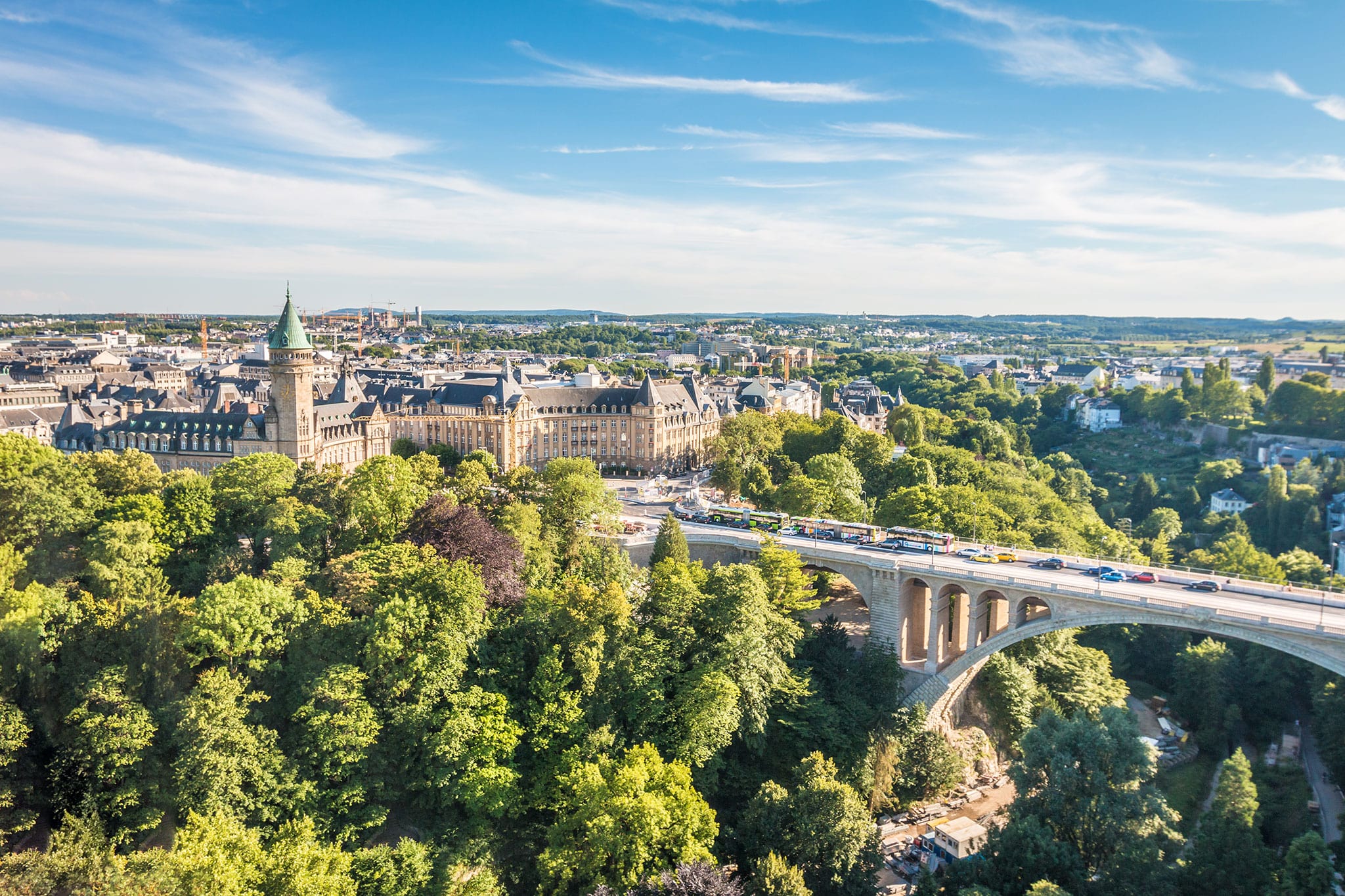
Adolphe Bridge and the Spuerkeessgebai
Who governs Luxembourg?
The Grand Duchy of Luxembourg is a monarchy ruled by a grand duke. and is now the last remaining grand duchy in the world. It was established 150 years ago on 11 May 1867 after being variously passed between France, the Netherlands and Belgium, and was to become a buffer state between countries that were in constant tension with each other. It is, of course, a constitutional monarchy, where the Grand Duke holds a symbolic office: executive power belongs to the government, legislative power to Parliament. The current Grand Duke is Henri of Luxembourg, born in 1955 who ascended to the throne in 2000. He is married to Grand Duchess María Teresa Mestre y Batista and is the father of five children.
What language is spoken in Luxembourg?
Article 29 of the constitution states that, since 1984, the official language is Luxembourgish (Lëtzebuergesch), a Germanic language understandable to German speakers but with French influences. Luxembourgish is used by everyone in schools, but there are no textbooks in Luxembourgish. Children are first taught to read in German and from second grade onwards they study French, which is the legislative language, and the language used for written communications to the population (road signs, billboards, etc.). This means that most Luxembourgers are trilingual, and switch from one language to another depending on the context!

Grand Ducal Palace
Ticket please!
On 29 February 2020, Luxembourg became the first country in the world to make public transport free for everyone, residents and tourists alike (with the exception of first class travel on trains), aimed at reducing car traffic. To organise your car-free trips, download the mobiliteit.lu app, which also manages the Free Floating e-bike service.
Schengen Area
These days you can travel without a passport between the European states, this is thanks to the agreements signed between 1985 and 1990 in Schengen, a small town in Luxembourg. To be exact, it was signed on 14 June 1985 on a boat moored off Schengen at a spot on the River Moselle by representatives of France, West Germany and Benelux (an acronym for the economic agreement between the Netherlands, Belgium and Luxembourg), close to the meeting point of their respective borders. Various photographic panels along the Moselle illustrate the context, while the European Museum (free admission) explains the history of the agreement and offers several interesting insights.


